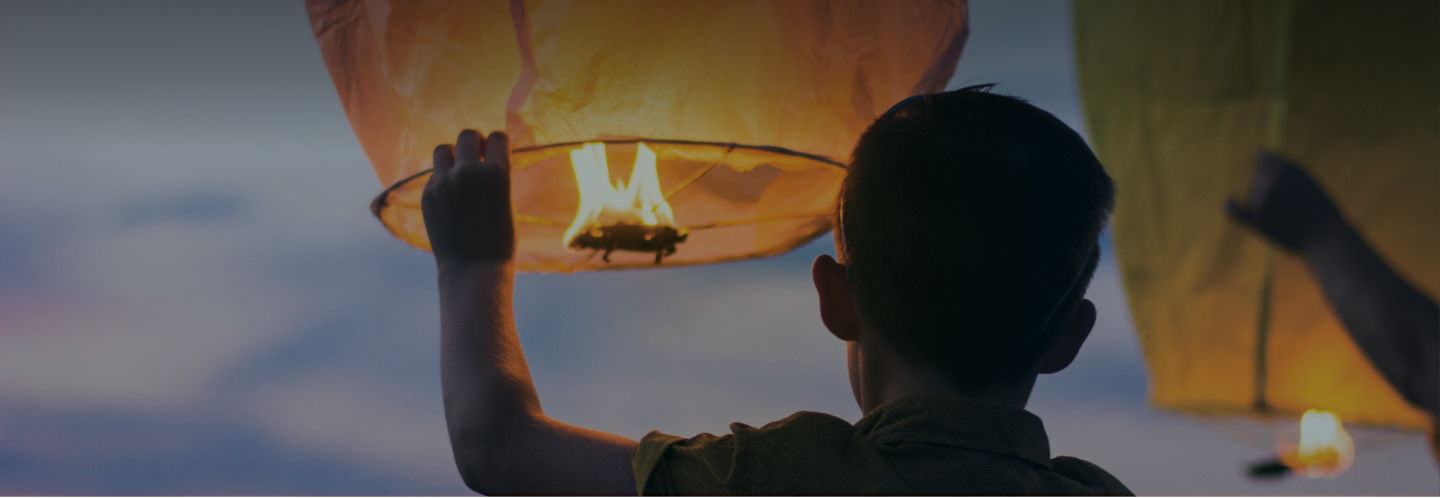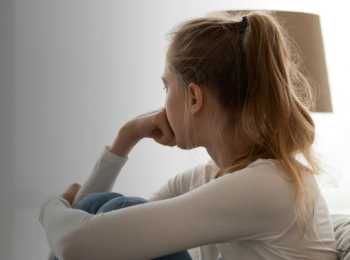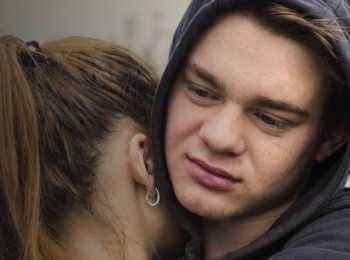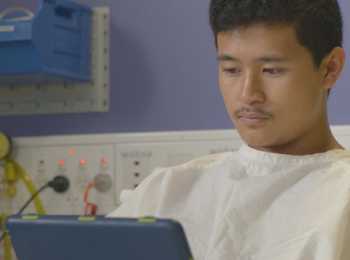Being told you have cancer can bring up a heap of feelings. It can be scary and leave you feeling confused, frustrated, angry and worried about how it might change your life.
There is no right or wrong way to feel right now. Every person reacts to the news in their own way. You’re not supposed to know how to cope with it.
Some of the ‘normal’ emotions you might feel include:
-
Shock or disbelief
-
Anxiety or panic
-
Frustrated
-
Angry
-
Scared
-
Like you’ve lost your independence
-
Upset, distressed or sad
-
Overwhelmed – like everyone is making a big deal out of it
-
Alone – like no one could possibly understand how you feel
-
Fine – that you will get through this.
Read on for tips on ways to cope with the news, and more info about dealing with the common feelings young people have when they find out they have cancer. Remember that different things work for different people.
Try out different strategies until you find the ones that help you feel better.
Dealing with the news
-
Hang on to hope: it doesn’t matter how bad things may seem, try to find something to be hopeful for. Most young people survive cancer.
-
Get informed: learning about your cancer and its treatments can take some of the fear out of it. Some people want to have a lot of information to help them cope; others prefer just a bit at a time.
-
Talk about how you’re feeling: your family and friends don’t know what you’re going through, so talking to them may help them understand what you need from them right now. Talking to people who have been through similar cancer experiences can be really helpful in coping and realising that you’re not alone. Ask your doctor or someone in your Youth Cancer Services team about meeting others at your hospital or in your area, or contact Canteen to connect with young people with cancer. You can also join Canteen Connect, an online community for young people impacted by cancer.
-
Ask for help: contact your nearest Youth Cancer Service or ask your doctor to recommend a counsellor. Youth Cancer Services have psychologists, social workers and youth workers who understand what you’re going through. They can give you tips for coping and recommend websites, support groups and other people and organisations that can help. Canteen also provides a free and confidential counselling service.
Dealing with anxiety and panic
Anxiety is a normal reaction when we’re faced with something as scary and uncertain as being diagnosed with cancer. But if feelings of anxiety, panic and worry about the future become so strong, or last for so long that they start to interfere with your normal life, it’s important to get some help.
Some strategies that can help include:
-
Practising slow, abdominal (into your belly) breathing.
-
Finding time to relax and chill out – give yourself permission to do things that you enjoy.
-
Taking one thing at a time, one day at a time too!
-
Doing something for others – and with others.
-
Setting small, realistic goals to help you tackle obstacles, and seeking help from others in solving your problems.
-
Writing things down in a diary or journal – putting down your worries on paper can help make them more manageable.
-
Setting aside a specific time each day for working on your problems. At other times try to put off worrying about things until that scheduled time.
-
Practising a grounding strategy that can help bring you back into the here and now, such as naming five things you can see, four things you can hear, three things you can smell, two things you can touch, one thing you can taste.
-
Asking for support and help from your family, friends or other community resources when you need it.
-
Joining a support group or getting in touch with other young people with cancer – sharing experiences with others who understand is often useful.
-
Within the Youth Cancer Service there are many people who can help such as doctors, nurses, psychologists, social workers and youth workers. Canteen also provides a free and confidential counselling service.
Dealing with anger
It’s natural to feel angry when you’ve been diagnosed with cancer. You might feel like it’s not fair and want to know ‘why me?!’.
You might feel angry that:
-
Your whole life has been turned upside down.
-
You can’t do what you used to do.
-
Your parent has to look after you more than usual.
-
There’s no one for you to blame.
It’s completely okay to feel anger, but there are good and bad ways to deal with it. Below are some helpful ways to release anger and stress:
-
Find a private space and SCREAM!
-
Do some boxing or just punch a pillow. Sometimes some basic, primal aggression (not focused at a person, of course) can really help get things out of your system.
-
Go for a run, walk or some other kind of exercise. Pounding the pavement is better than beating up on yourself, or someone else.
-
Have a hot shower and cry, sing or yell while you’re in there.
-
Have a good honest talk to someone you trust. Call your best mate and tell them why you’re feeling so angry. Anger sometimes covers up all the other emotions going on underneath and just admitting it to someone can help you unpack what you’re feeling.
-
Listen to music that suits your mood.
-
Write it down. Some people find writing stuff and then tearing it up and throwing it away helpful.
Keep in mind that there are also unhelpful ways to deal with anger. They include:
-
Drugs or alcohol: without the lecture, this is really only ever a short term fix. It may seem like a tempting way to cope, but it won’t help in the long run and will actually do you harm.
-
Hurting others: anger is a natural emotion but violence is never an okay way to deal with it. There are always other ways to express what you’re feeling.
-
Sometimes when we’re angry we try to cut ourselves off from people. It can feel like they’re annoying, even when they’re trying to help, or like they just don’t understand. It may seem hard, but try not to push the people who love you away. They only want to help, and it’s much harder to go it alone.
Remember: Getting cancer sucks, but you’re not alone. There are people who will understand and can help. Contact your nearest Youth Cancer Service to talk to a member of the team or ask them to recommend a counsellor, group or organisation that can help. Canteen also provides a free and confidential counselling service.
Dealing with fear
Finding out you have cancer can be very scary. Fear and anxiety are very normal reactions.
It’s common to be fearful or worried about:
-
Treatment – will it be painful; will it work?
-
Side effects or complications and how they may interfere with life in the future.
-
The future – how is this going to affect your life?
-
Being different and being rejected by your friends.
The things you could try to help you cope with any feelings of fear are:
-
Accept it: it’s normal to experience fear. Telling yourself not to worry or beating yourself up for being afraid won’t make the fear go away. Focus on finding ways to help yourself manage it instead.
-
Don’t sit there worrying alone: talking about your fears and feelings or writing down your thoughts in a journal can help reduce your anxiety. Connecting with others who are going through similar stuff can take a lot of the anxiety away.
-
Join a support group: it can really help to talk to other people your age who understand what you’re feeling and can give you practical advice because they’ve been through it. Canteen Connect is full of young people just like you if you’re ready to talk.
-
Ask your treatment team lots of questions: knowing what to expect can reduce your worries. You, your family and your treatment team are partners in charge of decisions about your cancer treatment – so get all the info you need to feel in control.
-
Have a healthy lifestyle: eating well, exercising regularly and getting enough sleep can help you feel much better, both physically and emotionally.
And finally, try to stress less. Reducing stress will help lower your overall level of anxiety. Try:
-
Spending time just hanging out with family and friends.
-
Continuing the hobbies and other activities you enjoy (as much as you can).
-
Going for a long walk, meditating, or enjoy a nice long bath.
-
Watching a funny movie or playing games.
-
Avoiding people and situations that make you feel stressed out (unless it’s the hospital – you can’t avoid that, but we do have tips to make that less stressful too).
Dealing with sadness and depression
Feeling upset, distressed, low or sad is a completely normal response to finding out you have cancer. Many young people also feel grief – about all the things they may be missing out on.
Although these feelings are normal, if they become overwhelming, last for a long time, or begin to interfere with your normal life, you need to get some help. If sadness or grief becomes clinical depression it can have serious effects on daily life.
If you think you might be feeling depressed it’s nothing to feel ashamed of and is not a sign of weakness. It’s also not something you can ‘snap out of’, so it’s important to talk to someone you trust and get help.
In the Youth Cancer Service there are many people who can help such as doctors, nurses, psychologists, social workers and youth workers. And don’t forget that Canteen also provides a free and confidential counselling service.


















